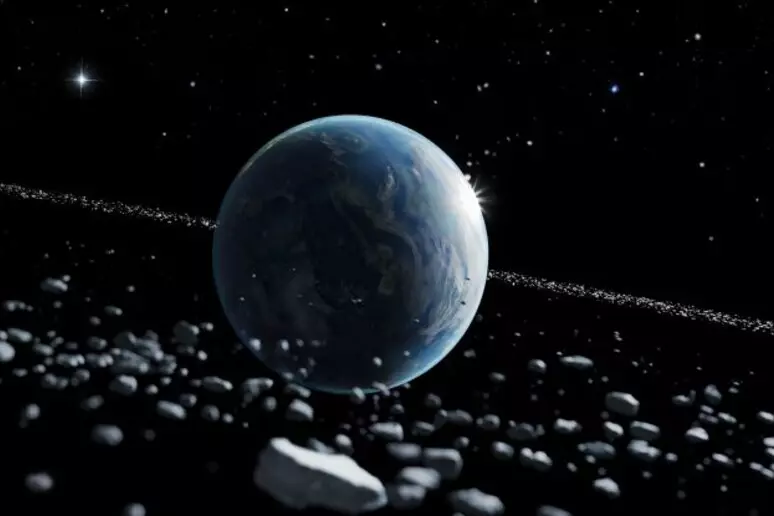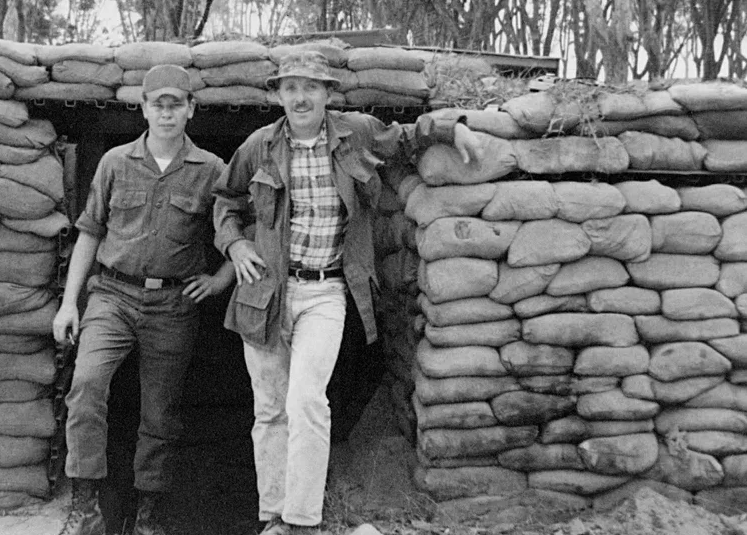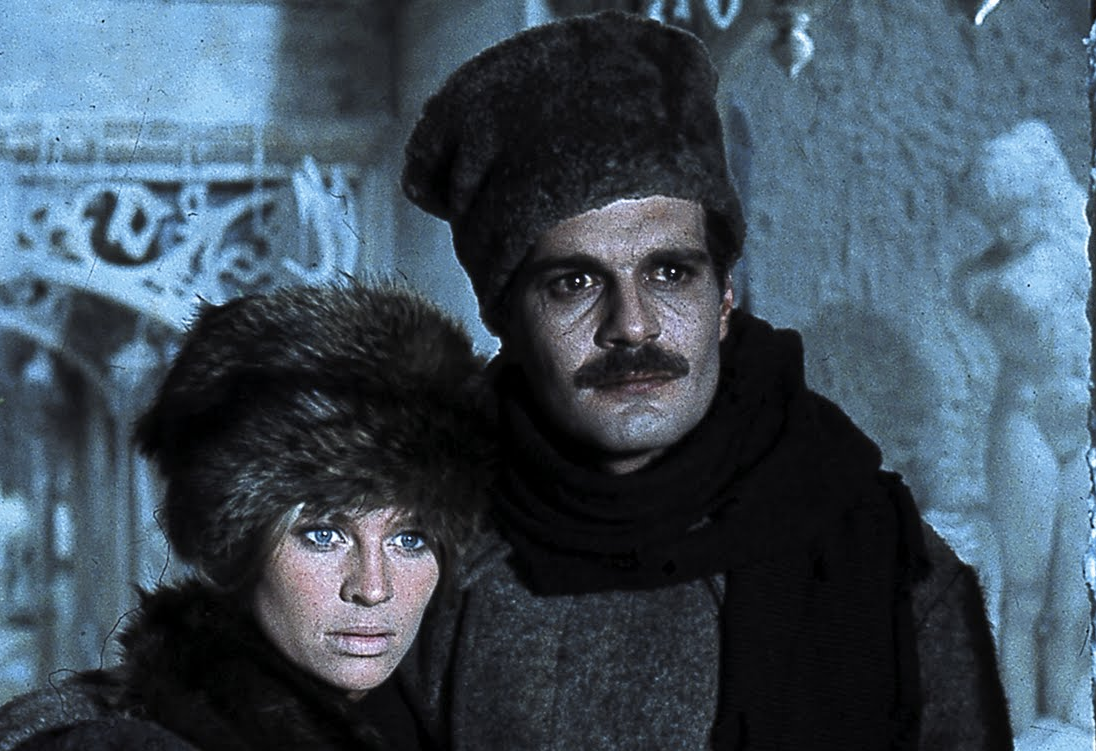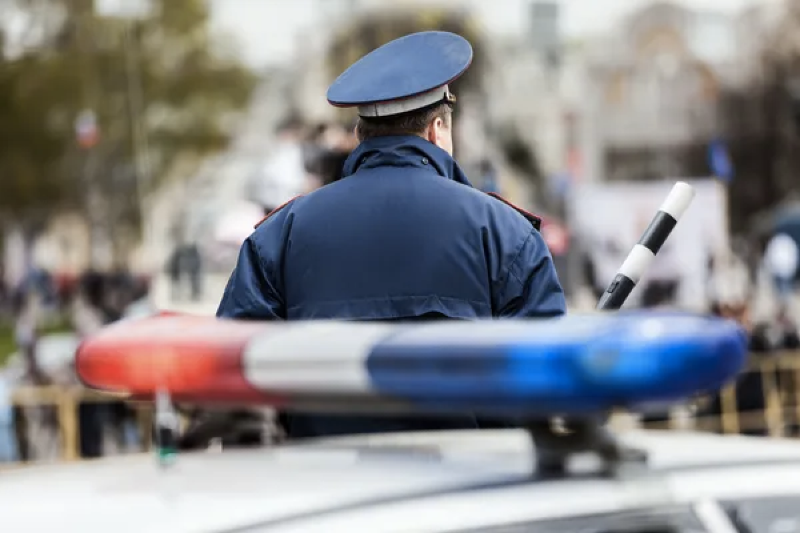Scientists say Earth may once have had a ring like Saturn

From The Conversation: "The rings of Saturn are some of the most famous and spectacular objects in the Solar System. Earth may once have had something similar. In a paper published last week in Earth & Planetary Science Letters, my colleagues and I present evidence that Earth may have had a ring. Around 466 million years ago, a lot of meteorites started hitting Earth. We know this because many impact craters formed in a geologically brief period. In the same period we also find deposits of limestone across Europe, Russia and China containing very high levels of debris from a certain type of meteorite. The meteorite debris in these sedimentary rocks show signs that they were exposed to space radiation for much less time than we see in meteorites that fall today. Using models of how Earth’s tectonic plates moved in the past, we mapped out where all these craters were when they first formed. We found all of the craters are on continents that were close to the equator in this period."
He decided to bring his Army friends some beers — when they were in Vietnam

From Now I Know: "In 1968, troops from the United States, South Vietnam, and Laos met the Viet Cong and the North Vietnamese in the Battle of Khe Sanh. There were nearly 100,000 combatants involved in the months-long skirmish, including 6,000 American Marines. Almost all of them were there to fight. But one of them, a Marine named Chickie Donohue, wasn’t. In fact, he wasn’t supposed to be there at all. He was just hoping to meet some friends and have a beer. In late 1967, Donohue was back in New York City, his hometown, drinking at a local bar. Antiwar protests had taken hold across the nation and the bartender — a former soldier named George “Colonel” Lynch (who was not, in fact, a colonel) wanted to do something to support the local boys serving in Vietnam. Half-jokingly, most likely, he suggested that someone should go to Vietnam and bring six of the bar’s regulars some beers. Donohue decided to turn the joke into reality."
How the manuscript for Doctor Zhivago was smuggled out of Russia

From the LRB: "The last Russian to publish a novel abroad without official sanction was Boris Pilnyak, and in so doing he had assigned himself his own bullet. In 1948, Pasternak warned his sisters in Oxford against printing some early chapters of Dr Zhivago, which he had sent them via an (unidentified) intermediary. ‘Publication abroad would expose me to the most catastrophic, not to mention fatal, dangers,’ he wrote. As he tells it, Berlin tussled with his conscience before reluctantly accepting the mission of smuggling Dr Zhivago out of Russia. The question for Berlin now was not whether but how to smuggle the manuscript out. He could no longer avail himself of diplomatic privilege, as he had done a decade earlier when he served as first secretary in the Moscow embassy. Then, shortly after meeting Pasternak for the first time, he had used the pouch to exfiltrate an early draft section of Dr Zhivago, sending it to his parents in London in October 1945 with instructions to keep it safe."
Police officers in California who plead guilty to misconduct have their records hidden

From the San Francisco Chronicle: "Twenty-five years ago, Hossep “Joe” Ourjanian’s supervisors at the Los Angeles County Office of Public Safety accused him of “flagrant” misconduct. They said he had pretended to attend military training to skip work. They had already decided he should be fired when they learned of another allegation: Ourjanian’s girlfriend said he had grabbed her and pulled her hair while she held their infant son. But then Los Angeles County did something remarkable: The county agreed to hide evidence that Ourjanian allegedly lied to dodge work in exchange for his promise to go without a fight. Records documenting the county’s finding of misconduct would be removed from his personnel file and their very existence would be kept secret. His firing would be rescinded. If any future employer asked, the county agreed to say only that he had resigned “indicating personal reasons.”
Looking for the mysterious photographer who snapped occupied Paris and mocked the Nazis

From Le Monde: "It all began quite simply, one morning in August 2020. On that day, at the flea market in Barjac, a town of 1,600 in southern France, a vintage photo enthusiast was browsing from stall to stall, looking for rare finds. Every year, Stéphanie Colaux visits the market to scavenge for albums like the ones they used to make, the ones bound in thick covers, containing black-and-white images with pretty scalloped edges. Weddings, birthdays, holidays at the seaside... these snapshots, rescued from oblivion, sometimes from the dumpster, exude the smell of attics and nostalgia, evoking distant intimacies and anonymous emotions. Strolling past one of the stands, she spotted a seemingly unremarkable album in a particularly poor condition. The laminated cover – very 1970s – showed two children playing with a model boat. Out of curiosity, Colaux decided to open it, and, to her astonishment, discovered a treasure trove."
The color purple is a figment of your imagination
Purple is purely a mental construct of the human brain.
— Brian Roemmele (@BrianRoemmele) September 18, 2024
We invented the color because of a lack of a sensor signal. pic.twitter.com/Dxc2aQeO5R
Acknowledgements: I find a lot of these links myself, but I also get some from other newsletters that I rely on as "serendipity engines," such as The Morning News from Rosecrans Baldwin and Andrew Womack, Jodi Ettenberg's Curious About Everything, Dan Lewis's Now I Know, Robert Cottrell and Caroline Crampton's The Browser, Clive Thompson's Linkfest, Noah Brier and Colin Nagy's Why Is This Interesting, Maria Popova's The Marginalian, Sheehan Quirke AKA The Cultural Tutor, the Smithsonian magazine, and JSTOR Daily. If you come across something interesting that you think should be included here, please feel free to email me at mathew @ mathewingram dot com



